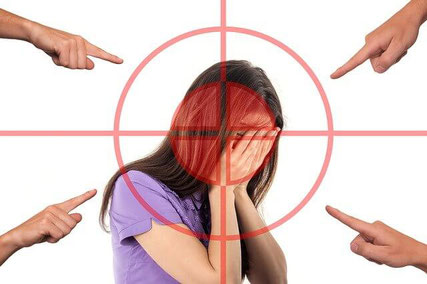
In my last column, I talked about how many people operate on a double standard – they show support and warmth towards others but are often self-critical and punitive towards themselves.
But what about the opposite instances? What about when we are quick to judge others, showing them none of the regard we would like to be shown ourselves?
Some examples. Mikes rings an acquaintance and the phone rings out. “Typical”, he mutters to himself, “he couldn’t be bothered taking my call”.
If Mike paused for a second, he would quickly realise he sometimes doesn’t answer others’ phone calls, for a variety of reasons – for example, he may in the middle of something, he may be talking to someone else, he may have had a long day and doesn’t want to talk right now, he may be eating, he may not have heard the call, and so on. No doubt, Mike wouldn’t like it if the person ringing said, “Typical, he couldn’t be bothered taking my call” – so why does he not show the same regard to the person he is ringing?
Some other examples. A stressed work colleague loses her temper at work and storms out of the office. “She’s a crazy cow”, says Michelle. Michelle would be hurt if others treated her this way. She would obviously hope others would cut her some slack and show some consideration (“Michelle’s not herself right now, she may have a lot going on”). So why not show the same consideration to her colleague?
Jack disagrees with Colin on a variety of subjects and they often argue. “Colin’s a selfish fool”, says Jack. Instead of criticising Colin’s views, he engages in simplistic labelling, criticising his character and deciding to see him as completely bad. Would Jack like it if others denigrated him simply because he holds different views to them? Of course he wouldn’t.
POLITICIANS

Politicians from across the political spectrum suffer very personalised online criticism. The name-calling – scumbag, crook, traitor – can be vicious. Some people celebrate and taunt when a politician loses their seat. And yet, can you imagine if people viciously criticised your work and views every day? Can you imagine if mobs of people routinely called for you to be fired? Can you imagine if you saw people celebrating because you had lost your job?
I appreciate you need a thick skin to enter politics and people may feel they have very good reason to be upset over one politician or another, but there is a limit. None of us would like it if others dehumanised us, so we should not dehumanise others.
One final example: online shaming. Anyone familiar with social media will have witnessed condemnatory pile-ons, where a large group of people excoriate someone who has apparently committed some sin or another, encouraging others to jump in and do the same. In such instances, it’s almost as if the denouncers have forgotten they are dealing with a real person with the same human vulnerabilities as the rest of us. It’s as if they forget to ask: how would I feel if I was on the receiving end of a pile-on? How would I feel if hundreds of people were name-calling me online?
The so-called ‘golden rule’ is the principle of treating others as one wants to be treated. It is found in almost all cultures and religions as well as in non-religious ethical traditions. Showing consideration towards others means remembering everyone has a past, everyone is human and makes mistakes, everyone has their own side to the story. It means pausing before acting, asking: would I like it if someone else did this to me?
Showing this basic consideration obviously benefits others, but it also has mental health benefits for ourselves. Habitually criticising other people can feel good in the short term, as it makes us feel more moral and more competent. However, it ultimately results in distorted and harsh beliefs.
In contrast, trying to heed the golden rule teaches us empathy and fosters compassion. It helps us become to become more calm, balanced thinkers – less angry, less cynical, less likely to see the glass as half-empty than half-full.
In short, it helps us to be happier.
(First published in Southern Star on 09/06/2022)